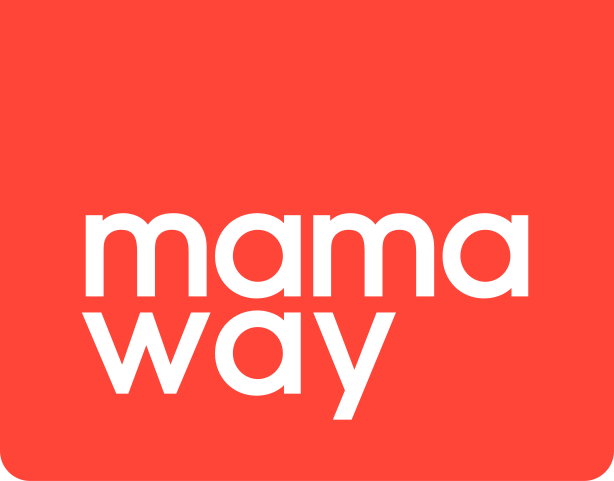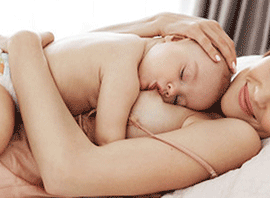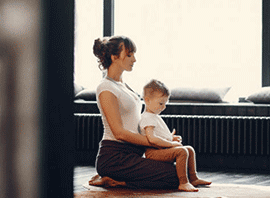As soon as you mention the word "breastfeeding", then suddenly everyone has some insights to offer. You often hear about how breastfeeding is beneficial for your baby, and it definitely is, but breastfeeding is surely no easy task that takes time and adjustments.
Here are 10 things I wish I had known about breastfeeding before I gave birth, and I hope they come in handy for you as well in the stressful days of early motherhood.
When will I start having breast milk?


For the first few days after your baby's birth, your body will start producing colostrum, also known as "pre-milk" or "first milk". Colostrum is rich in nutrients and antibodies, and it contains large numbers of antibodies that aren't available in infant formula.
While colostrum is sometimes clear, thin, and watery, it's more often yellow and thick. Your body only produces a small amount of colostrum, but it's concentrated and highly nutritious. Within 2 to 4 days, your breasts will start to feel fuller, firmer, and heavier, and this is a sign that the true breast milk has replaced colostrum.
The mixed feelings of breastfeeding


Some women describe breastfeeding as a magical bonding moment with the feeling of liquid gold flowing out of their breast. Yet for other mothers, it can be like a burning lava river of hell coming out of their body.
Imagine doing feeding sessions 8-12 times a day with the accompanying pain of chapped nipples caused by incorrect latch. Breastfeeding is a roller-coaster journey, and know that you should not beat yourself up for not being able to produce enough milk or breastfeed for long. The breastfeeding journey will be different for everyone.
Nobody is an expert in breastfeeding at first


Breastfeeding isn't as simple as "baby plus nipple”, and nobody is an expert in breastfeeding at first. It takes practice, adjustment, patience, and you and your baby have to learn to do this together.
Breastfeeding is like taking a Driver’s License Test. You study and keep yourself informed about breastfeeding knowledge before delivery (study for Driver’s License Test). When the baby is born, this is where the actual test takes place (taking a road test). After passing the test, it still takes some time and practice to be familiar and skilled in it.
You might feel a bit like a dairy farmer


You might feel a bit like a dairy farmer with the never-ending feeding session, but there are some tips to help alleviate breast engorgement. Breast compression or lean over and shake your breasts for 1 to 2 minutes can help lessen mastitis and clogged ducts. No matter if you breastfeed or breast pump, it can stimulate your nipple for your body to start producing breast milk. Take a warm-hot shower for 3 to 5 minutes and place a clean, cold cabbage on your breast. Trust me, your breast will feel so much better and relaxed!
Remedies for cracked nipples


Breastfeeding can be painful if your baby has a poor latch or if you have an incorrect breastfeeding posture. It can result in sore, cracked, and even infected nipples. Apply some medical-grade lanolin ointment or freshly expressed breast milk onto your cracked nipples, as they can moisturize your nipples and accelerate their healing. Be sure to seek medical attention if your nipples are infected.
Breastfeeding can be enjoyable


After you get the hang of it and a breastfeeding routine has been established, breastfeeding can be enjoyable. Breastfeeding stimulates the release of the hormone Oxytocin, which helps produce breast milk and makes you and your baby feel happy and relaxed.
Nighttime breastfeeding is a breeze when using the side-lying position, which is the perfect way to breastfeed comfortably in your bed. *When using this position, there should be no excess bedding around the baby that could pose a suffocation hazard, and baby should be put back in the crib after each feeding during the night.
Don’t worry about losing that baby weight


Pregnancy takes its toll on us physically and emotionally, and you need to give your body time to recover, so don’t rush the weight loss process. While you don’t need to eat more to breastfeed, you may find that it makes you rather hungry and thirsty. The good news is, breastfeeding can help you burn the calories! You burn about 400 to 500 calories per day by breastfeeding, which turns your baby into your best health coach!
Furthermore, breast milk is composed of approximately 90 percent water, so keep in mind to stay hydrated to have enough water in your body to produce breast milk.
Breast milk can leak anywhere, anytime


Ever heard about the let-down reflex? Your breast milk might leak without warning, anywhere and anytime, even when your baby isn’t near you. It can happen when you see other babies, kittens, puppies, and it may even happen when you are engaging in sexy time with your husband. A breast pad will be your new best friend to prevent that awkward leak!
Electric breast pump will save you the hassle


Electric breast pumps are easy and convenient. It gives you the freedom to go out, go back to work, or just let your partner take a feeding shift. However, beware that they can be loud. Look for one that is quiet and small, so your colleagues won't hear your pumping session (Rrrr… Rrrr…).
Breastfeeding can be totally different with different kids


People can tell you all about breastfeeding, but it can be totally different with different kids. Even if it works for one kid, it doesn’t mean it will be smooth sailing with the other. If you have a successful breastfeeding experience with your first child, it might be smooth with the second, or it might be the complete opposite. You might feel frustrated at first, but it will get better with time as you and your newborn develop a breastfeeding way that works for the both of you.
Breastfeeding is a constant learning process. It requires your patience and investment, but at the same time, it fosters a loving, nurturing, and strong emotional bond between you and your baby. Breast of luck to my breastfeeding mamas!













Validate your login
Sign In
Create New Account